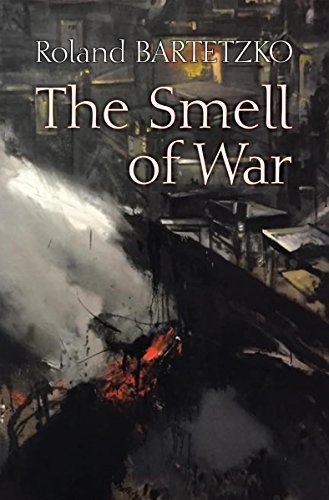Book review: The Smell of War by Roland Bartetzko

There aren’t many boys today who grow up with the ambition to fight in a war – but that’s what Roland Bartetzko always wanted to do. Growing up in the old West Germany, there was the chance that he would have to do exactly that, should the Soviet tanks roll West. So Bartetzko enrolled in the German army, training as a paratrooper. But then, in a miracle that was so unexpected we have pretty well ignored it ever since, the Berlin Wall came down, the Soviet Union dissolved and the Cold War ended without a shot being fired.
Great for the rest of us, bad for a young German who desperately wanted to test his mettle in a proper war. But in the aftermath of the dissolution of the old Eastern bloc, the old tensions that had been suppressed under communism rose to the surface again, first in what had previously been Yugoslavia. War broke out there, the first war in Europe since the end of World War II. Now Bartetzko had his chance.
Signing up as a volunteer for the Croatian Defence Council, Bartetzko got to taste war at first hand. And not just taste it: he dived in head first. Because this is the strange truth that it’s important we recognise: for most people, war is hell. But there is a small sub group of men for whom war is not life: never do they feel more alive, more energised, more vital than when their lives are on the line. Bob Crisp, South African cricketer, WWII tanker and, according to Wisden, ‘one of the most extraordinary men to ever play cricket’ was one. Crisp later told his son that he “loved the war. He enjoyed it. He thought it was fantastic“.
Another was Adrian Carton de Wiart whose Wikipedia biography famously begins: He served in the Boer War, First World War, and Second World War. He was shot in the face, head, stomach, ankle, leg, hip, and ear; was blinded in his left eye; survived two plane crashes; tunnelled out of a prisoner-of-war camp; and tore off his own fingers when a doctor declined to amputate them. Describing his experiences in the First World War, he wrote, “Frankly, I had enjoyed the war.”
Now we can add Roland Bartetzko to that list. For with the Croatian war over, Bartetzko did not go home to Germany but instead volunteered for the even more shoestring Kosovo Liberation Army, fighting a guerilla war against the Serbs, seemingly against impossible odds, until NATO came to the rescue of the Kosovans.
But this is not a book about why Bartetzko wanted to test himself in battle – he barely touches on that. Instead, it’s actually a manual of what to do and what not to do if you should find yourself fighting as a guerilla against a vastly more powerful enemy. It includes how to set up an ambush, what to do when pinned down by a machine gun, the importance of foot care and many other aspects of practical war craft from a man who knows it better than most people. It’s laconic, clear and honest.
Bartetzko is still the war dog. Too old, he says, to fight against the Russians in Ukraine, he is still near the front lines, bringing supplies and equipment to the soldiers there. It’s a remarkable book from a fascinating man – but a man who appears oblivious or unwilling to ask questions as to his own fascination with war.
0 Comments